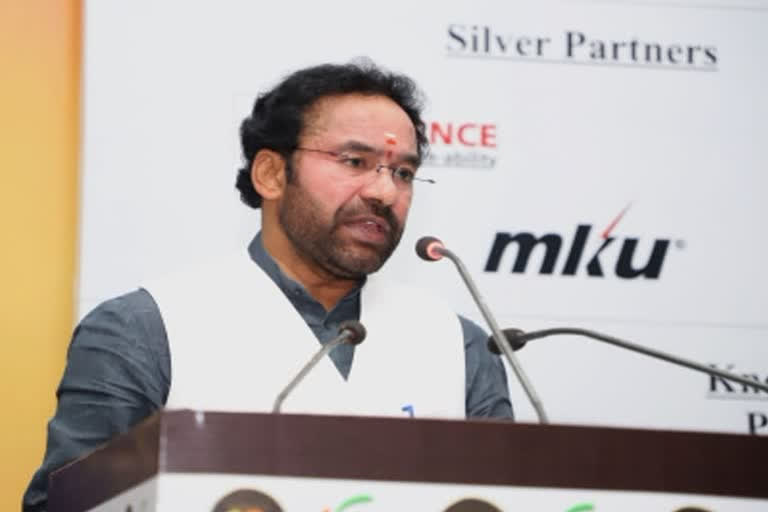New Delhi: The Centre on Monday said the GNCTD (Amendment) Bill has been brought to end ambiguity in running the affairs of the national capital, and appealed to everyone not to term it a 'political move” since it will be beneficial to the people of the city.
The ruling Aam Aadmi Party in Delhi has opposed the Government of National Capital Territory of Delhi (Amendment) Bill, 2021. Chief Minister Arvind Kejriwal had even urged the central government to take back the bill and said the AAP dispensation was ready to fall at the Modi government's feet for its withdrawal.
Initiating the debate on the bill in Lok Sabha, Union Minister of State for Home G Kishan Reddy said the bill has become necessary as there have been ambiguity in certain issues related to the functioning of the Delhi government and several cases were also filed in courts.
'Please do not say that it is a political bill. It is being brought to end ambiguity in certain issues as Delhi is a Union Territory. It will end certain confusion or technicality and enhance the efficiency of the administration,' he said.
The bill was introduced in Lok Sabha on March 15 following which Delhi ministers and AAP MPs, MLAs and councillors staged a protest at Jantar Mantar here against it, saying it gives overarching power to the Lieutenant Governor (L-G).
The bill also makes it mandatory for the Delhi government to take the opinion of the L-G before any executive action.
Reddy said there has been cordial relations between the central and Delhi governments since 1996 and all differences were resolved through discussions.
Read: Rising pollution in Yamuna leads to 40% decline in Delhi's water supply
However, since 2015, some issues have come up and cases were filed before the Delhi High Court, which also gave certain rulings.
Reddy said the court had also ruled that the L-G should be informed on executive issues of the city government.
According to the statement of objects and reasons of the bill, the original bill was enacted to supplement the provisions of the Constitution relating to the legislative assembly and a Council of Ministers for Delhi and for matters connected therewith.
'The section 44 of the Act deals with conduct of business and there is no structural mechanism provided in the Act for effective time bound implementation of said section. Further, there is no clarity as to what proposal or matters are required to be submitted to the L-G before issuing order thereon,' it said.
It said that to give effect to the interpretation made by the Supreme Court which had ruled that the city government need not obtain the Lieutenant Governor's 'concurrence' of every issue of day-to-day governance, the bill has been brought.
The central government said it wanted to clarify the expression 'Government', which in the context of legislations to be passed by the Delhi assembly, shall mean the “L-G of Delhi”, consistent with the status of Delhi as a Union Territory to address the ambiguities in the interpretation of the legislative provisions.
Read: UK court clears Indian drug kingpin's extradition
It further seeks to ensure that the L-G is necessarily granted an opportunity to exercise the power entrusted to him under proviso to clause (4) of article 239AA of the Constitution, in select category of cases and also to make rules in matters which incidentally encroach upon matters falling outside the preview of the assembly.
'The said bill will promote harmonious relations between the legislature and the executive, and further define the responsibilities of the elected government and the L-G, in line with the constitutional scheme of governance of the National Capital Territory of Delhi, as interpreted by the Supreme Court,' the statement of objects said.
Read: Restore all 3 to 4 crore ration cards that were cancelled: Manoj Jha
PTI



